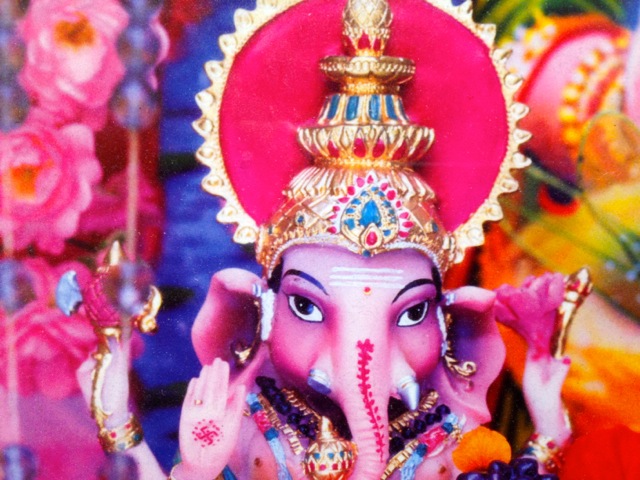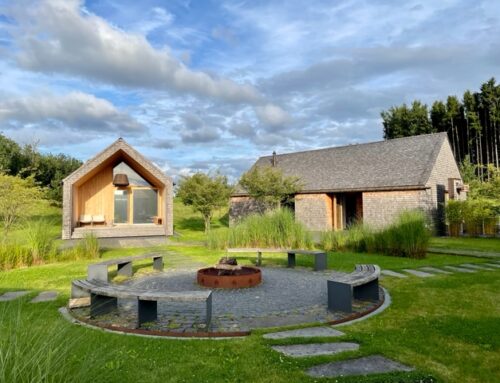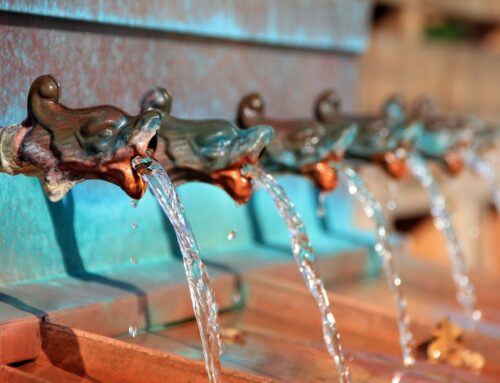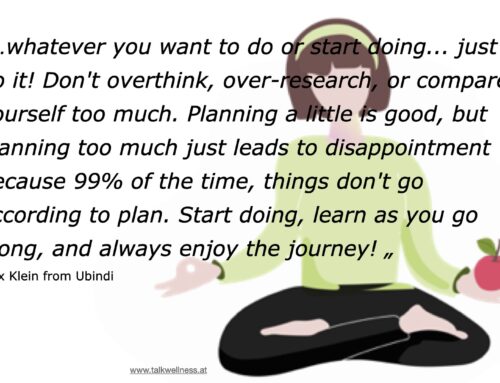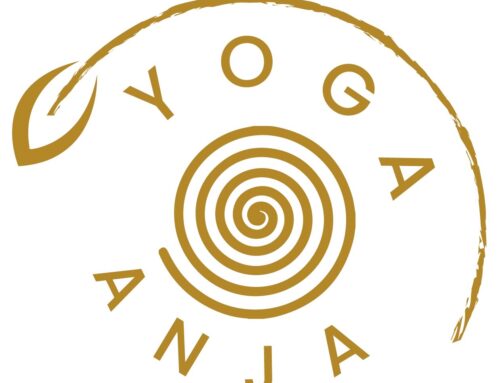New Age Ayurveda: Ancient and historically authentic…it’s the new spa-modern
Ayurveda, the “science of life,” or longevity, is the holistic alternative science from India, and is more than 5,000 years old. It is believed to be the oldest healing science in existence, forming the foundation of all others. Buddhism, Taoism, Tibetan, and other cultural medicines have many similar parallels to Áyurveda.
The secret of Áyurveda’s individualised healing method was preserved in India, whereas it has been lost or superseded in other cultures. Áyurveda (pronounced Aa-yer-vay-da), said to be a world medicine, is the most holistic or comprehensive medical system available. Before the arrival of writing, the ancient wisdom of healing, prevention, and longevity was a part of the spiritual tradition of a universal religion. Healers gathered from the world over, bringing their medical knowledge to India. Veda Vyasa, the famous sage, preserved the complete knowledge of Áyurveda in writing, along with the more spiritual insights of ethics, virtue, and self-realization.
Áyurveda is a spiritual science
Others say Áyurveda was passed down from God to his angels, and finally to humans. Áyurveda, the “science of life” is the original world medicine, yet Áyurveda is more than this; it is a spiritual science. This is the most important aspect of Áyurveda.
Ayurveda is a complex medical system, and a complete philosophy of healthy living, identifying imbalances in a person’s “doshas,” and prescribing a personalised, detoxifying regime of diet change, exercise such as yoga, and a mental discipline regime like meditation, healthy sleep, regular massage and herbal medicine. It combines a holistic system of medicine with a complete philosophy of healthy living. Ayurveda incorporates Wellness for Mind, Body and Soul. These three components of the human system are linked to one another, so all three must be considered when looking at a person’s state of wellbeing.
Everyone is unique and as a result, Ayurveda treatment offers a lifestyle and wellness counselling that is right for you and your body type in accordance is with the principles of Ayurveda. Ayurveda is based on the belief that we all have three doshas (elemental based energies) which reside in our bodies in varying degrees. When a person is in a healthy state, these doshas are balanced in a natural harmony within our bodies. In order to understand our natural healthy state of being, we must understand our Ayurvedic body type.
A new commercialised form of Ayurveda
Thus paradoxically, despite its emphasis on spirituality, New Age Ayurveda has given rise to a new commercialised form of Ayurveda, emphasising wellness and beauty as fundamental components of good health. Its commercial offerings include a range of cosmetic and massage treatments provided in beauty salons and spas, over-the-counter products (mostly cosmetics and nutritional supplements), and do-it-yourself or self-help literature (i.e., guides on beauty treatments, nutrition, and fitness). Selby (2005) describes how Ayurveda, twinned or even merged with yoga into “Ayuryoga,” has become a branded commodity in North American spa culture. Therefore we may find a spa offering a full-day treatment entitled “Ayurvedic Bliss,” which in this case means “Luxury Spa Pedicure, Aromatherapy Salt Glow Body, Exfoliation and Hot Stone Back Massage,” treatments that are not found in classical Ayurvedic texts.
Ayurvedic organisations and western medical centres like the National Institute of Health, have helped fuel Ayurveda’s growing popularity. It’s the growing acceptance in the global medical community, and by more people generally, that the mind-body link—and preventative health approaches like a better diet, more exercise and less stress—are the keys to forestalling disease and providing true wellbeing.
“Authentic Ayurvedic” medicine is partially used outside India in the form of yoga and/or meditation, or in relaxing treatments like shirodhara, the pouring of oils on the forehead.
Expect more programs with the whole Ayurvedic “package”
Now look for deeper, more authentic programs, overseen by Ayurvedic doctors to take off, both at new Indian spas and worldwide. Expect more programs with the whole Ayurvedic “package”: pulse and dosha analysis by a qualified practitioner; Panchakarma, a multi-week detox; dietary recommendations and coaching (so people can make healthier eating a daily reality); and mind-focused “Satwa Vajaya” approaches, like yoga and meditation, that strengthen what we in the West call “willpower.”
According to the SpaFinder Wellness 2013 Trends Report, India’s government is putting muscle behind its wellness tourism (22 percent growth annually), and with Ayurveda a campaign centrepiece, more people will travel to experience the “real deal” in its homeland.
More authentic Ayurveda is also rising worldwide… Examples: Mandarin Oriental properties like Chang Mai (Thailand) and the new Galo Resort Sport Hotel’s (Madeira) Ayurveda Cure Centre. Even day spas are part of the trend, like London’s Ayurveda Pura, with its Panchakarma retreats (featuring Ayurvedic meals, herbal medicine, daily massage and personalised yoga and meditation classes.) It also runs an academy that trains practitioners.
And in general, we’ll see more spas incorporating Ayurvedic elements/treatments, which can be valuable even if they’re not full-blown medical programs. A couple examples: the brand-new Gstaad Alpina Hotel and Spa (Switzerland) with its Ayurveda room and the Thann Sanctuary Spa at the Castle Hotel & Spa (New York, opening 2013) showcasing Ayurvedic massages.
Ancient and historically authentic…it’s the new spa-modern
Ancient and historically authentic…it’s the new spa-modern. Ayurveda is but one “ancient” that will experience a strong revival. This desire for more authentic, ancient wellness has also been quickened by our Internet Age, which has made a World Wide Web of traditions instantly explorable.
Guest article by Nathalie Galeano El Bayeh
Nathalie is from Lebanon, she has travelled to the U.S.A where she finished her studies in Holistic Nutrition and skin care therapy. Nathalie currently lives in Abu Dhabi, finishing her Spa Management Diploma online. Nathalie believes that Happiness is the purpose of life, the more we learn how to live healthy, how to have faith, how to think positive, and how to be emotionally, spiritually and physically balanced, the more we are closer to happiness. As the Dalai Lama once said: “The first step in seeking happiness is learning. We first have to learn how negative emotions and behaviours are harmful to us and how positive emotions are helpful”.
References:
Tirtha, S, Uniyal, R, Sandhu, S, & Chandhok, J 2006, The Ayurveda Encyclopedia: Natural Secrets To Healing, Prevention & Longevity, Bayville, NY: Ayurveda Holistic Center Press, eBook Collection (EBSCOhost), EBSCOhost,
Smith, F, & Wujastyk, D 2008, Modern and Global Ayurveda: Pluralism and Paradigms, Albany: State University of New York Press, eBook Collection (EBSCOhost), EBSCOhost,
Spa Finder Trend Report http://www.spafinder.com/newsletter/trends/2014/2013-trends-report.pdf

